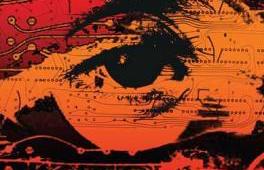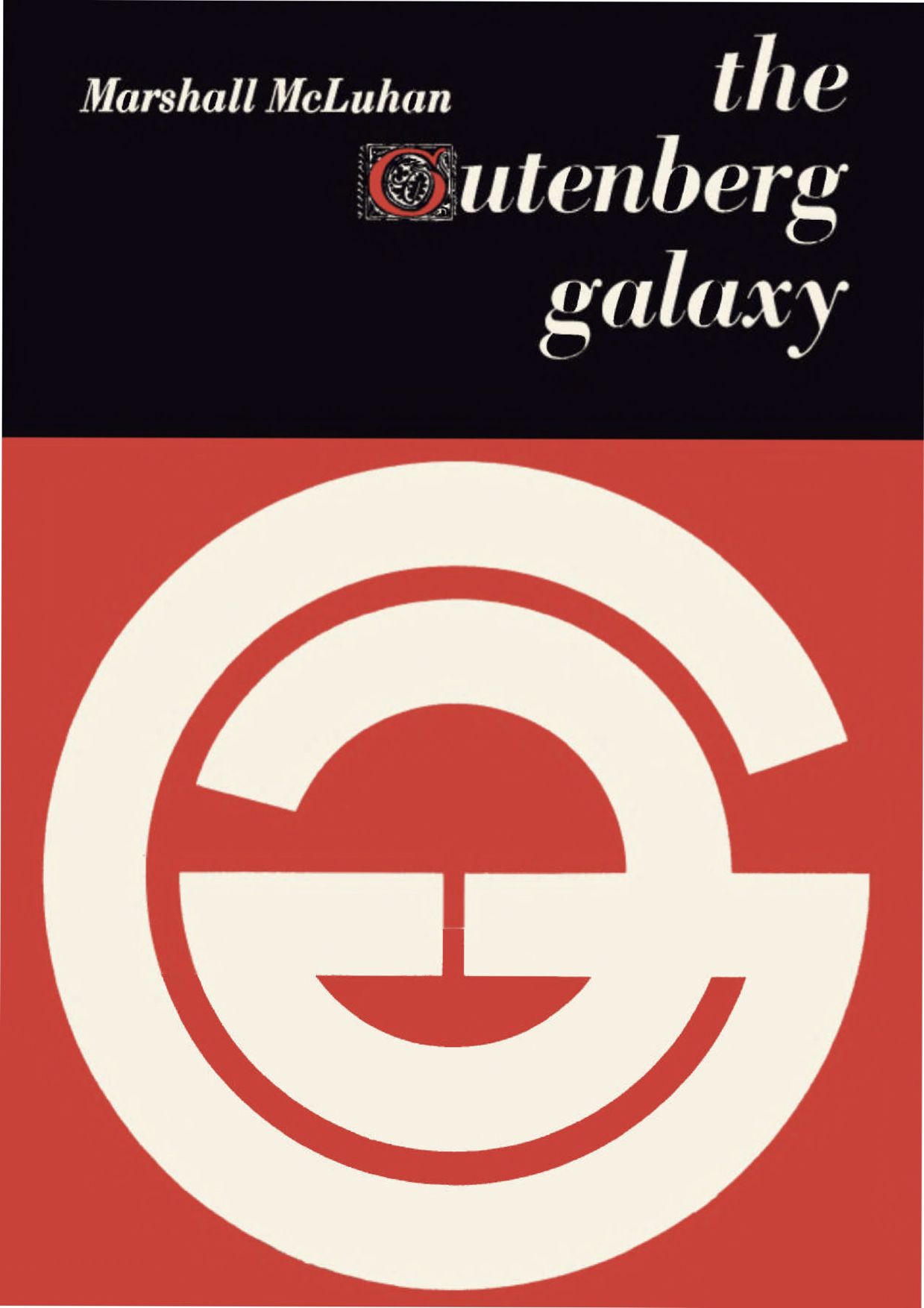
McLuhan, The Gutenberg Galaxy The Making of Typographic Man
The Gutenberg Galaxy: The Making of Typographic Man is a 1962 book by Marshall McLuhan, in which the author analyzes the effects of mass media, especially the printing press, on European culture and human consciousness. It popularized the term global village, which refers to the idea that mass communication allows a village-like mindset to apply to the entire world; and Gutenberg Galaxy, which we may regard today to refer to the accumulated body of recorded works of human art and knowledge, especially books.
McLuhan studies the emergence of what he calls Gutenberg Man, the subject produced by the change of consciousness wrought by the advent of the printed book. Apropos of his axiom, “The medium is the message,” McLuhan argues that technologies are not simply inventions which people employ but are the means by which people are re-invented. The invention of movable type was the decisive moment in the change from a culture in which all the senses partook of a common interplay to a tyranny of the visual. He also argued that the development of the printing press led to the creation of nationalism, dualism, domination of rationalism, automatisation of scientific research, uniformation and standardisation of culture and alienation of individuals.
Movable type, with its ability to reproduce texts accurately and swiftly, extended the drive toward homogeneity and repeatability already in evidence in the emergence of perspectival art and the exigencies of the single “point of view”. He writes:
The world of visual perspective is one of unified and homogeneous space. Such a world is alien to the resonating diversity of spoken words. So language was the last art to accept the visual logic of Gutenberg technology, and the first to rebound in the electric age.
Download
McLuhan_The Gutenberg Galaxy The Making of Typographic Man.pdf
McLuhan_The Gutenberg Galaxy The Making of Typographic Man.txt
McLuhan_The Gutenberg Galaxy The Making of Typographic Man.html
McLuhan_The Gutenberg Galaxy The Making of Typographic Man.jpg
McLuhan_The Gutenberg Galaxy The Making of Typographic Man.zip



